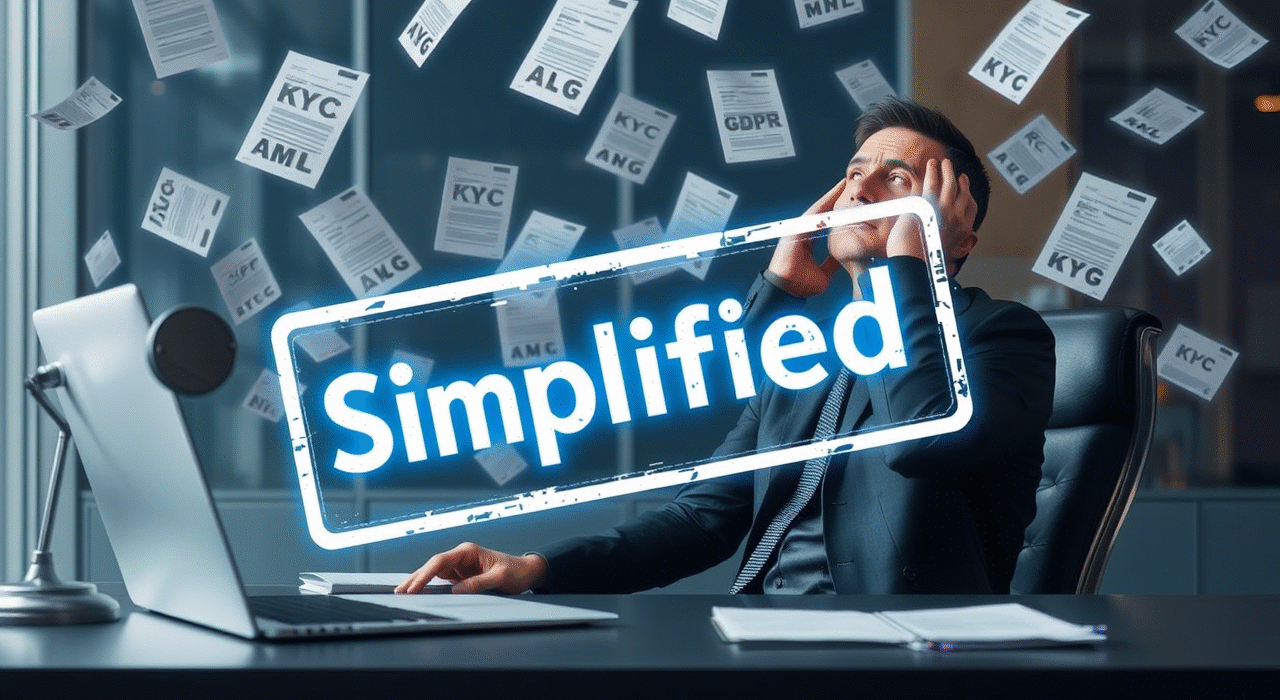🧠 Introduction: Executives, It’s Time to Speak Compliance
You’re not a lawyer. You’re not a compliance officer. You’re a founder, a board member, a CMO, or a CEO with P&L responsibilities, investor decks, and market expansions to worry about.
But in iGaming?
Regulatory understanding isn’t optional—it’s existential.
Whether you’re entering a new market, negotiating a partnership, or handling an audit, legal and regulatory jargon is everywhere. And failing to grasp it—even slightly—can cost you licenses, revenue, or your company’s future.
This is your no-nonsense, executive-level cheat sheet for understanding the most critical regulatory terms, stripped of fluff and legalese.
📜 Section 1: Licensing Acronyms You Can’t Ignore
MGA – Malta Gaming Authority
Malta is a Tier-1 regulatory hub in Europe. An MGA license is both credible and flexible—used by many top brands.
- Why you care: It influences payment processing, affiliate partnerships, and compliance obligations across the EU.
UKGC – United Kingdom Gambling Commission
The most rigid, high-stakes jurisdiction. UKGC doesn’t mess around—just ask any operator who’s lost their license.
- Why you care: Operating in the UK is high value, high risk. Make one slip on KYC or affordability checks, and you’ll be in hot water.
GGL – Gemeinsame Glücksspielbehörde der Länder (Germany)
Germany’s relatively new central regulator. Think: ultra-strict, heavy on compliance, but essential for local access.
- Why you care: Local servers, €1 slot limits, advertising controls—it’s all about control. But a German license unlocks Europe’s largest market.
AGCO – Alcohol and Gaming Commission of Ontario
North America’s new darling. Ontario offers regulated iGaming access outside of the U.S. state-by-state grind.
- Why you care: Essential if you’re eyeing the North American market beyond Nevada and New Jersey.
CGA – Curaçao Gaming Authority (new structure in 2025)
The Wild West is over. Curaçao’s reform means real audits, real accountability.
- Why you care: If you operate offshore, the new CGA rules affect your onboarding, crypto handling, and operational legitimacy.
💼 Section 2: Legal Compliance Terms Executives Must Know
KYC – Know Your Customer
Your player is who they say they are. This isn’t just a login—it’s identity verification at the core.
- What it means for you: If your KYC processes fail, regulators fine you or worse—revoke your license. Yes, really.
AML – Anti-Money Laundering
Preventing criminal funds from entering the system.
- Why it matters: Regulators are doubling down. You need a compliance team trained in real-time transaction monitoring, source-of-funds checks, and suspicious activity reports (SARs).
RG – Responsible Gambling
Are you protecting your players from harm? This goes beyond opt-outs and reality checks.
- What you’re on the hook for: Deposit limits, affordability checks, intervention policies, and time-out enforcement.
PEP – Politically Exposed Person
Higher risk due to potential involvement in corruption or public trust.
- What to know: A VIP high-roller who’s also a PEP? You need enhanced due diligence—fast.
GDPR – General Data Protection Regulation
European law governing user data. Violations = fines up to €20M or 4% of global turnover.
- Why it’s executive-level: You’re legally responsible for how player data is handled, shared, and stored. Yes, even if it’s outsourced.
SOW / SOF – Source of Wealth / Source of Funds
Where is the player’s money coming from? One proves the origin (salary, crypto earnings), the other proves the method (bank, wallet).
- Why it’s a big deal: With rising crypto usage, this gets murky. Get it wrong, and your AML policies look like Swiss cheese.
🧮 Section 3: Technical Standards & Certification
ISO 27001 – Information Security Standard
It’s the gold standard for data protection in gambling.
- Why it matters: Required by most Tier-1 regulators. No ISO? Good luck getting licensed.
GLI – Gaming Laboratories International
They test and certify RNG fairness, game functionality, and technical stability.
- Executive takeaway: Your games must be GLI-certified—or you’re not compliant.
RTP – Return to Player (with regulation)
Some jurisdictions require you to publicly list or cap RTP.
- Compliance wrinkle: Misstating this—or varying it unfairly—can land you on a regulator’s blacklist.
🕵️ Section 4: Audits, Reporting & Risk Flags
SAR – Suspicious Activity Report
Filed when a transaction doesn’t look right.
- Executive lens: You need internal policies that escalate red flags before they hit the regulator’s radar.
AML Risk Matrix
A system that scores player risk based on data points like deposit frequency, geography, and device changes.
- What you need: Compliance tools that make this real-time and actionable.
Affordability Checks
The newest battlefield in player protection. You may be required to prove that your players can afford to play.
- Why it’s controversial: Operators fear drop in revenue. Regulators see it as essential. Either way, you can’t ignore it.
REMs – Regulatory Event Metrics
Reports you must send to your regulator—ranging from complaint volumes to self-exclusion trends.
- Leadership role: You must ensure these are timely, accurate, and in sync across departments.
📈 Section 5: When Regulation Becomes Strategy
Let’s be clear: Compliance isn’t just a cost center. For forward-thinking executives, it’s a brand moat.
Being licensed in Tier-1 markets gives you:
- Ad credibility. Google Ads? Only licensed operators get full access.
- Payment processing power. Top payment gateways prioritize regulated brands.
- Investor interest. Institutional money only flows to compliant operators.
🔐 Executive Checklist: Are You Really Compliant?
✅ Do you have visibility into how KYC, AML, and RG are being implemented?
✅ Are your compliance and marketing teams in sync on messaging and ad targeting rules?
✅ Do you know your licensing jurisdiction’s 2025 updates (especially MGA, CGA, UKGC)?
✅ Have you tested your response plan for a real audit or license challenge?
✅ Can you explain your data protection and affordability strategy to a regulator—or a journalist?
🎯 Final Thought: Compliance Is Culture, Not a Checkbox
For executives in the iGaming world, compliance isn’t a department. It’s a mindset.
It’s knowing how regulatory frameworks influence:
- Your product roadmap
- Your marketing campaigns
- Your M&A activity
- Your survival
Master the jargon. Demystify the landscape. And use regulation as your strategic advantage—not your legal liability.











